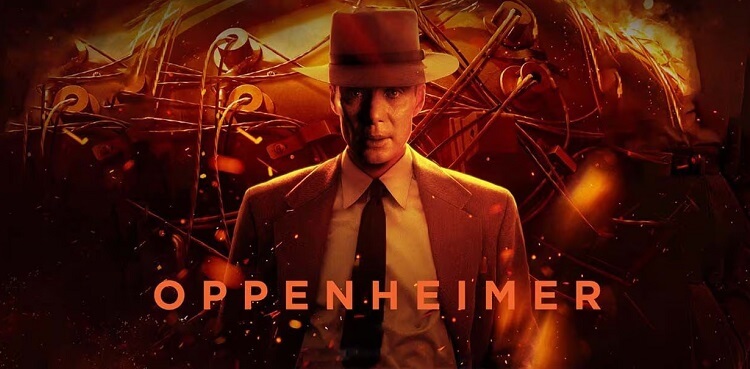10 Best Science Fiction-Fantasy Books According to Laraib
You can send us your collection by going to ContactUs page.
Please be aware that the content within this list may be updated, modified, or revised in the future. As new information becomes available or circumstances evolve, the items or rankings within the list may be adjusted accordingly.
Note that the collection presented here has been contributed by an individual and every Individual has its own Opinion so it is not an official collection. While we strive to curate and provide high-quality content, the accuracy, completeness, and authenticity of the collection cannot be guaranteed. The views, opinions, and selection of items within this collection solely belong to the user who created it. We encourage you to explore and enjoy the collection with an open mind, understanding that it reflects personal preferences and perspectives. Should you have any questions or concerns, please feel free to reach out to us. Your feedback is valuable as we continuously strive to enhance your browsing experience
Created By: Laraib
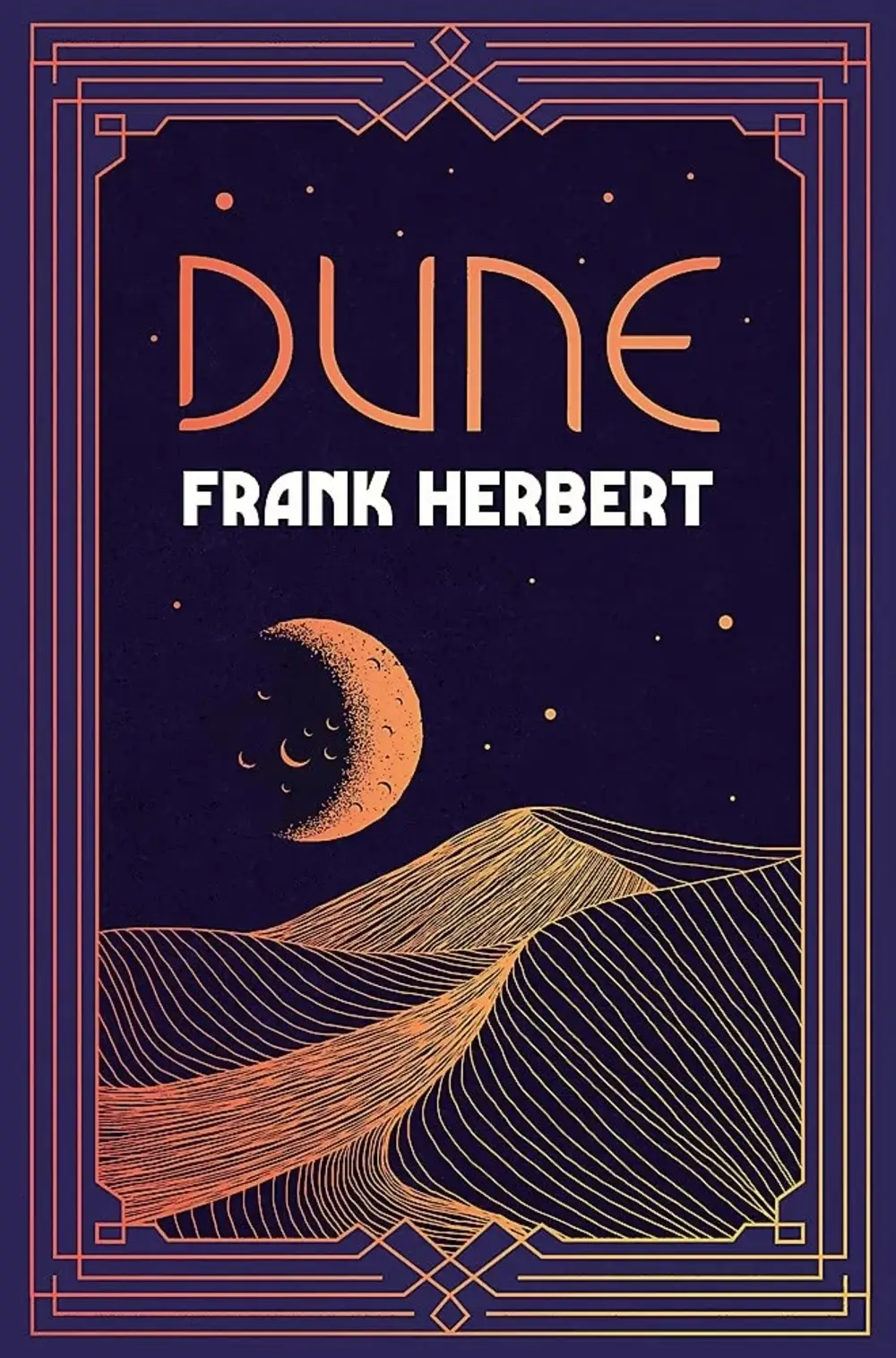
Title: Dune (1965)
Author: Frank Herbert
Publication Date: 1965
Genre: Science Fiction
Summary: "Dune" is a science fiction novel set in a distant future where noble families control planets, and powerful organizations compete for control of the most valuable resource in the universe, known as "melange" or "spice." The story centers around young Paul Atreides, whose family is tasked with managing the desert planet Arrakis, the only source of the precious spice. As Paul's family faces political intrigue and betrayal, he discovers hidden abilities and becomes entangled in a prophecy that could shape the fate of the entire universe.
Legacy: "Dune" is a highly influential and acclaimed work of science fiction, renowned for its complex world-building, intricate plot, and exploration of themes such as politics, religion, and ecology. The novel has inspired numerous adaptations, including films, television series, and video games. It remains a beloved classic in the science fiction genre and has left a lasting impact on popular culture.
Awards and Recognition: "Dune" won the prestigious Hugo Award for Best Novel in 1966, solidifying its place as a seminal work in the science fiction genre.
Cultural Impact: The novel's deep philosophical themes and intricate narrative have garnered a dedicated fan base and have influenced subsequent generations of writers and filmmakers.
Film Adaptations: Over the years, "Dune" has been adapted into multiple film versions, with the most recent one directed by Denis Villeneuve released in 2021, aiming to capture the essence of the epic novel on the big screen.
"Dune" remains a timeless masterpiece that continues to captivate readers and audiences, exploring the complexities of human nature and the vastness of the universe through a thrilling and thought-provoking narrative.
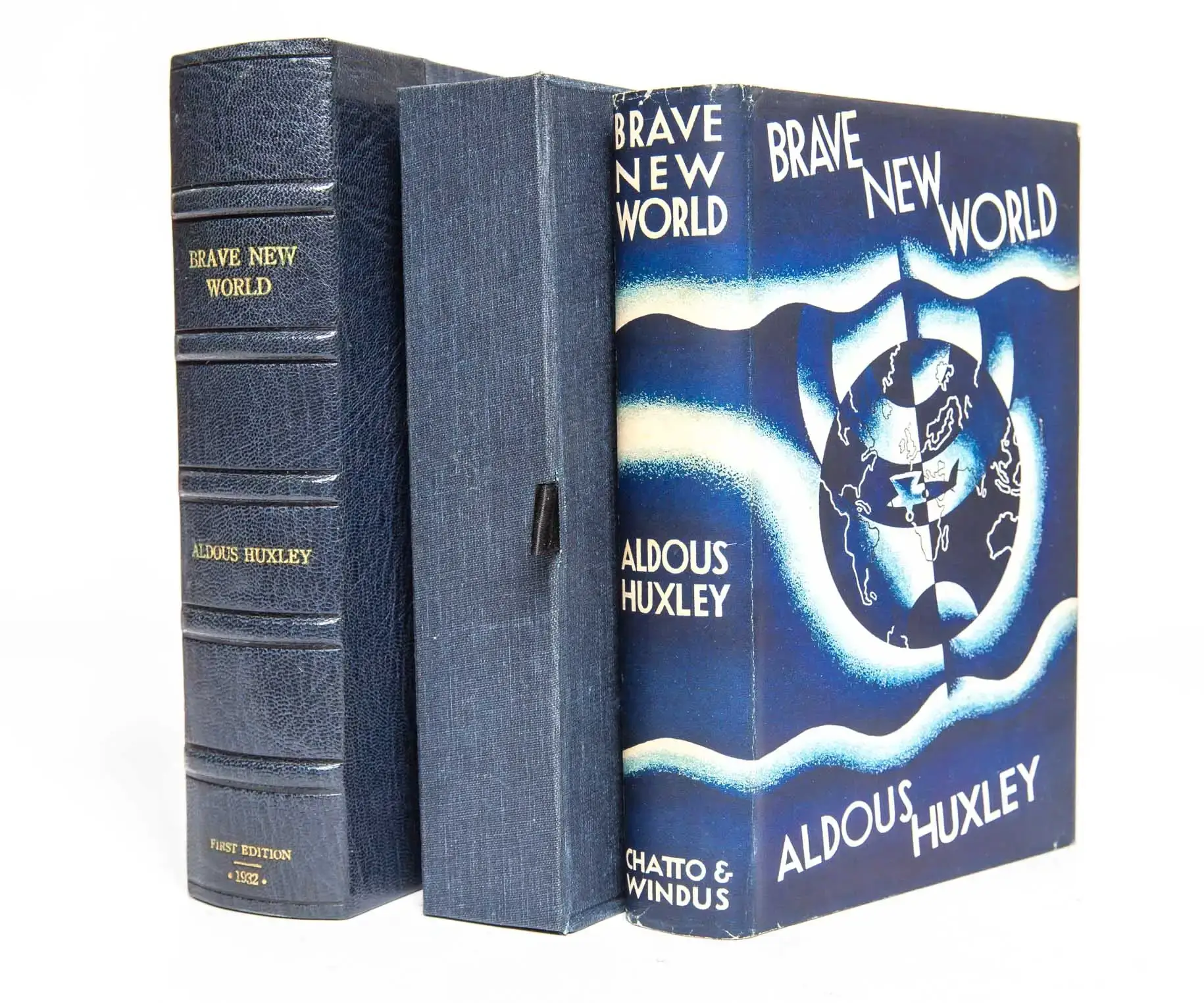
Title: Brave New World
Author: Aldous Huxley
Publication Date: 1932
Genre: Dystopian Fiction
Summary: "Brave New World" is a dystopian novel set in a futuristic society where technology, genetic engineering, and psychological conditioning have created a seemingly perfect world. In this highly controlled and orderly society, citizens are engineered to fit specific roles, and pleasure and conformity are prioritized over individuality and freedom. The story follows Bernard Marx, an outsider who struggles with his place in this rigid society, and John "the Savage," a young man raised outside the confines of this new world. As their paths converge, the novel explores the clash between the ideals of a controlled utopia and the complexities of human emotions and desires.
Themes: "Brave New World" delves into themes of conformity, individuality, the dangers of unchecked technological advancement, the cost of societal stability, and the price of sacrificing individual freedom for collective contentment.
Legacy: Aldous Huxley's novel is considered a classic work of dystopian fiction and has had a profound influence on the genre. It continues to be analyzed and debated for its relevance to contemporary society and its cautionary tale about the potential consequences of prioritizing comfort and control over personal autonomy.
Social Critique: "Brave New World" serves as a critique of modern industrialized societies and the potential dehumanization that could result from technological advancements and social engineering.
Impact: The phrase "Brave New World" has become a common expression to refer to an optimistic, yet often illusory, vision of the future.
Adaptations: "Brave New World" has inspired numerous adaptations, including stage plays, radio dramas, and television adaptations. It remains a thought-provoking and relevant work that challenges readers to reflect on the trade-offs between societal stability and personal freedom.
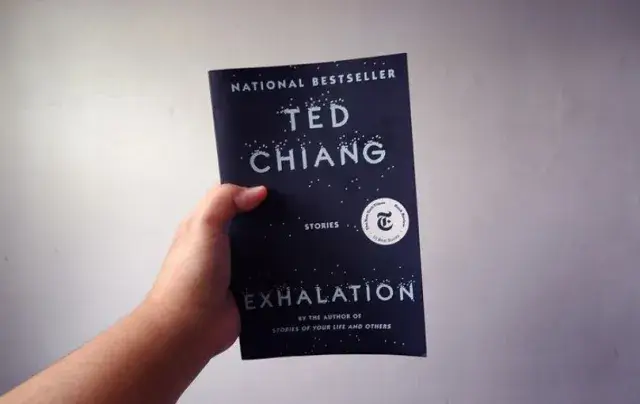
Title: Exhalation
Author: Ted Chiang
Publication Date: 2008
Genre: Science Fiction, Short Stories
Summary: "Exhalation" is a collection of nine mind-bending science fiction short stories written by the acclaimed author Ted Chiang. Each story explores profound philosophical and scientific concepts, delving into the nature of reality, consciousness, artificial intelligence, time travel, and the human condition. Chiang's masterful storytelling weaves intricate narratives that challenge readers' perceptions and invite deep contemplation.
Notable Stories:
-
"Exhalation": In this titular story, a mechanical being seeks to understand the nature of consciousness and the implications of its own existence.
-
"The Merchant and the Alchemist's Gate": A time-traveling tale set in ancient Baghdad, exploring the consequences of altering the past.
-
"The Lifecycle of Software Objects": Chiang delves into the ethical complexities of artificial intelligence and the emotional bonds formed between humans and AI.
Themes: The collection explores themes of identity, time, mortality, artificial intelligence, and the impact of scientific discoveries on humanity's perception of the universe.
Critical Acclaim: "Exhalation" received widespread critical acclaim and won several prestigious awards, including the Hugo, Locus, and British Science Fiction Association awards.
Influence: Ted Chiang's works have garnered respect and admiration from fellow writers, scientists, and readers alike for their thought-provoking themes and profound storytelling.
Legacy: "Exhalation" solidifies Ted Chiang's position as one of the foremost contemporary science fiction writers, with his stories challenging the boundaries of the genre and earning a dedicated following.
Impact on Film: Some of Chiang's stories have served as inspiration for acclaimed films, such as "Arrival" (based on his story "Story of Your Life") and "The Lifecycle of Software Objects" (in development).
Reflection on Human Nature: "Exhalation" offers readers an opportunity to reflect on fundamental questions about the nature of existence, the limitations of knowledge, and the essence of being human.
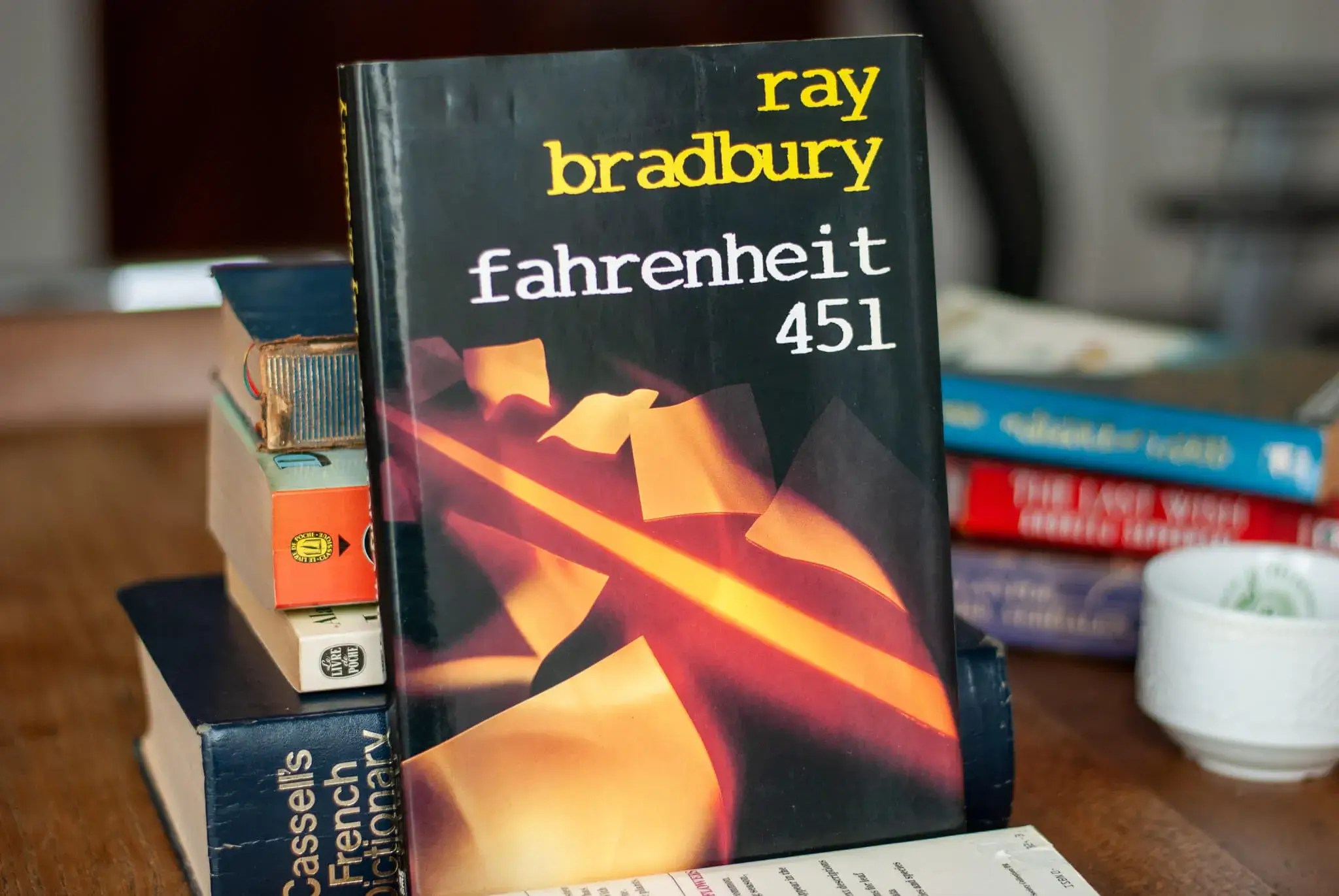
Title: Fahrenheit 451
Author: Ray Bradbury
Publication Date: 1953
Genre: Dystopian Fiction
Summary: "Fahrenheit 451" is a dystopian novel set in a future society where books are banned, and intellectualism is discouraged. The protagonist, Guy Montag, is a fireman whose job is to burn books, which are seen as a threat to the conformity and stability of the society. As Montag becomes disillusioned with his life and starts questioning the oppressive regime, he embarks on a journey of self-discovery, seeking knowledge and truth beyond the superficiality of his world. Along the way, he encounters rebels and outcasts who preserve and memorize the contents of books to keep knowledge alive.
Themes: "Fahrenheit 451" explores themes of censorship, the power of knowledge, the dangers of conformity, and the importance of critical thinking and intellectual freedom.
Social Critique: Ray Bradbury's novel serves as a critique of a society that suppresses dissenting ideas, discourages intellectual exploration, and favors mindless entertainment over meaningful communication.
Impact: "Fahrenheit 451" has become a classic work of literature, resonating with readers for its warning about the dangers of authoritarianism and the importance of preserving free thought.
Cultural Significance: The title "Fahrenheit 451" refers to the temperature at which paper ignites and burns, symbolizing the destruction of knowledge and the suppression of ideas.
Adaptations: The novel has been adapted into various films, radio dramas, and stage productions. It continues to be a source of inspiration for discussions on censorship, individuality, and the role of literature in society.
Relevance Today: Bradbury's cautionary tale remains relevant in modern times, prompting reflection on the value of literature, the power of information, and the need to defend intellectual freedom.
Memorable Quotes:
- "If you hide your ignorance, no one will hit you and you'll never learn."
- "We need not to be let alone. We need to be really bothered once in a while. How long is it since you were really bothered? About something important, about something real?"
- "There must be something in books, things we can't imagine, to make a woman stay in a burning house; there must be something there. You don't stay for nothing."
Legacy: "Fahrenheit 451" continues to be taught in schools, discussed in book clubs, and referenced in discussions about censorship, knowledge, and the importance of preserving intellectual curiosity in society.
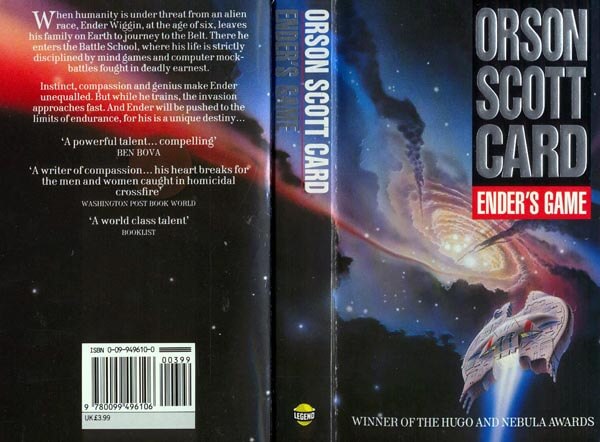
Title: Ender's Game
Author: Orson Scott Card
Publication Date: 1985
Genre: Science Fiction, Military Fiction
Summary: "Ender's Game" is a gripping science fiction novel set in a future where Earth is under threat from an alien race known as the Formics or "Buggers." In response, the International Fleet begins training children from a young age to become military commanders capable of leading Earth's defense. Among these child prodigies is Ender Wiggin, a brilliant and strategic young boy who is chosen for his exceptional abilities in a simulated war game known as the Battle School. As Ender progresses through rigorous training, he faces moral dilemmas and the pressures of leadership, all while questioning the true nature of the battles he is fighting.
Themes: "Ender's Game" explores themes of war and its impact on children, the ethics of warfare, empathy, and the consequences of power and manipulation.
Empathy and Understanding: Ender's journey forces readers to confront the complexities of understanding the "enemy" and the consequences of dehumanization in times of conflict.
Child Prodigy and Sacrifice: The novel delves into the psychological toll on child prodigies who are burdened with the responsibilities of adults, sacrificing their innocence and childhood for the greater good.
Adaptations: "Ender's Game" has been adapted into a movie and a graphic novel, bringing the story to a wider audience and sparking new discussions on its themes.
Legacy: Orson Scott Card's novel has become a classic in the science fiction genre, inspiring subsequent works and leaving a lasting impact on readers and writers alike.
Controversy: While the novel received critical acclaim, it has also faced criticism for its author's controversial views and statements, leading to debates about separating the creator from their work.
Quotes:
- "In the moment when I truly understand my enemy, understand him well enough to defeat him, then in that very moment I also love him."
- "The great ones always play games. They love games."
- "The power to cause pain is the only power that matters, the power to kill and destroy, because if you can't kill, then you are always subject to those who can, and nothing and no one will ever save you."
Relevance Today: "Ender's Game" continues to be studied in schools and discussed in conversations about the ethics of warfare, leadership, and the moral complexities of war.
Cultural Impact: Ender Wiggin has become an iconic character in science fiction, resonating with readers as a symbol of resilience and the complexities of human nature.
Hugo and Nebula Awards: "Ender's Game" received the prestigious Hugo and Nebula Awards, cementing its place as a significant work in the science fiction genre.
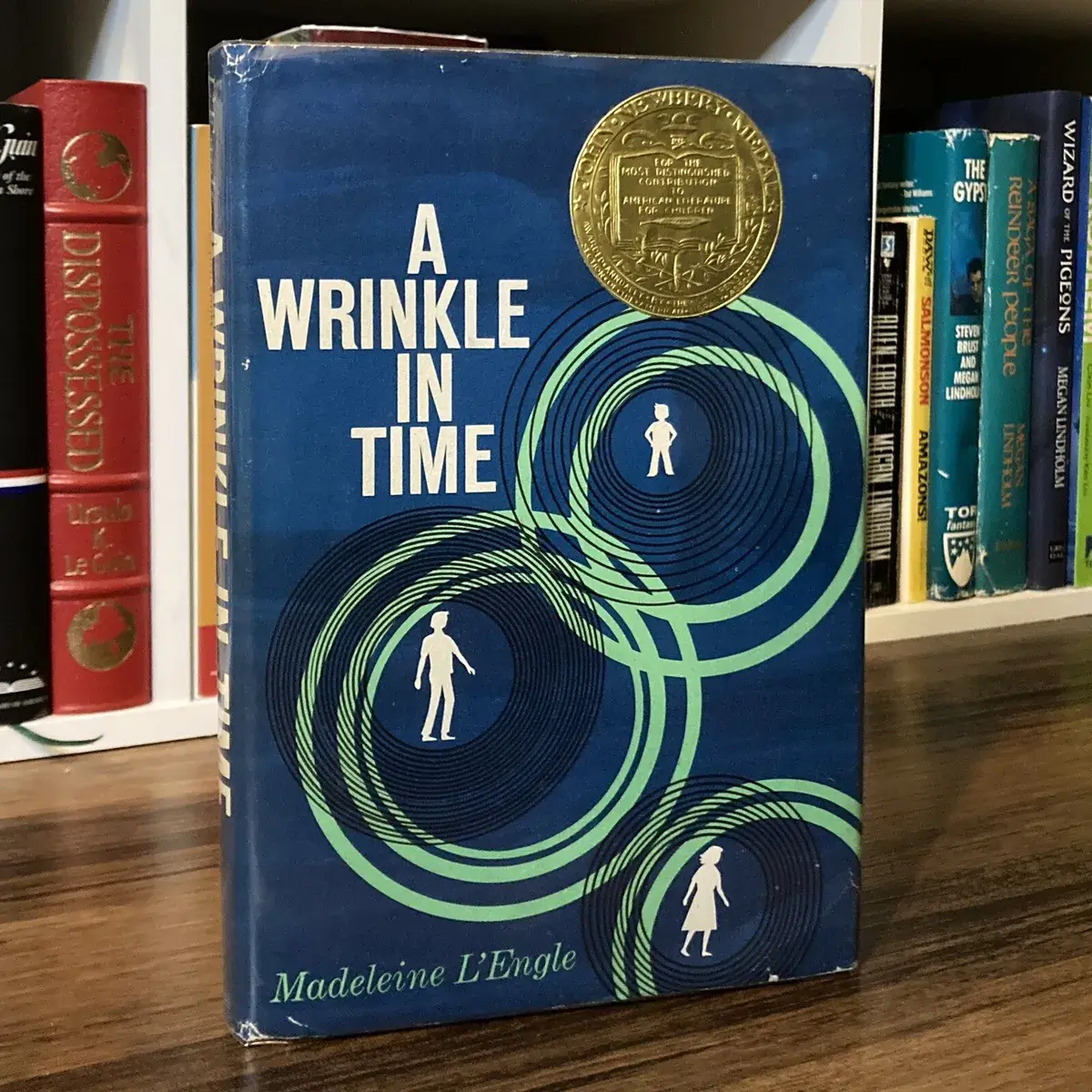
Title: A Wrinkle in Time
Author: Madeleine L'Engle
Publication Date: 1962
Genre: Science Fiction, Fantasy, Young Adult
Summary: "A Wrinkle in Time" follows the extraordinary journey of Meg Murry, her younger brother Charles Wallace, and their friend Calvin O'Keefe. The story begins when the siblings' father, a scientist, mysteriously disappears while researching time travel and interdimensional travel. One stormy night, three mysterious beings - Mrs. Whatsit, Mrs. Who, and Mrs. Which - appear and reveal that they can help find their father. The trio embarks on an adventure through the fifth dimension, known as the "tesseract," to rescue Mr. Murry from the clutches of the evil IT, a dark force that seeks to control minds and worlds.
Themes:
Good vs. Evil: The novel explores the classic battle between good and evil, with the characters facing dark and oppressive forces in their quest to save Mr. Murry and protect the universe from IT's malevolence.
Individuality and Love: Meg's journey is a quest for self-acceptance and love. The story emphasizes the power of individuality and the strength that comes from embracing one's uniqueness.
Friendship and Unity: The bond between Meg, Charles Wallace, and Calvin demonstrates the strength of friendship and unity in overcoming challenges.
Imagination and Creativity: The novel celebrates the power of imagination and creativity, as the characters use their unique gifts and intellect to solve problems and navigate through different dimensions.
Courage and Belief: "A Wrinkle in Time" highlights the importance of courage and belief in oneself, even in the face of fear and uncertainty.
Quotes:
- "The only way to cope with something deadly serious is to try to treat it a little lightly."
- "You have to find what sparks a light in you so that you in your way can illuminate the world."
- "Like and equal are not the same thing at all!"
Relevance Today: The novel remains relevant for its exploration of timeless themes and the enduring appeal of a heroic quest filled with wonder and imagination.
Adaptations: "A Wrinkle in Time" has been adapted into several films, stage plays, and graphic novels, bringing the story to new generations of audiences.
Newberry Medal: Madeleine L'Engle's masterpiece was awarded the prestigious Newbery Medal in 1963, recognizing it as an outstanding contribution to children's literature.
Legacy: "A Wrinkle in Time" continues to captivate readers of all ages and has become a beloved classic in children's literature.
Cultural Impact: The novel's blend of science fiction, fantasy, and coming-of-age themes has inspired numerous works in the young adult and speculative fiction genres.
Themes of Inclusivity: The book addresses themes of diversity and inclusivity, promoting acceptance and embracing differences.
Message of Hope: The novel leaves readers with a message of hope, emphasizing the transformative power of love and the potential for good to triumph over darkness.
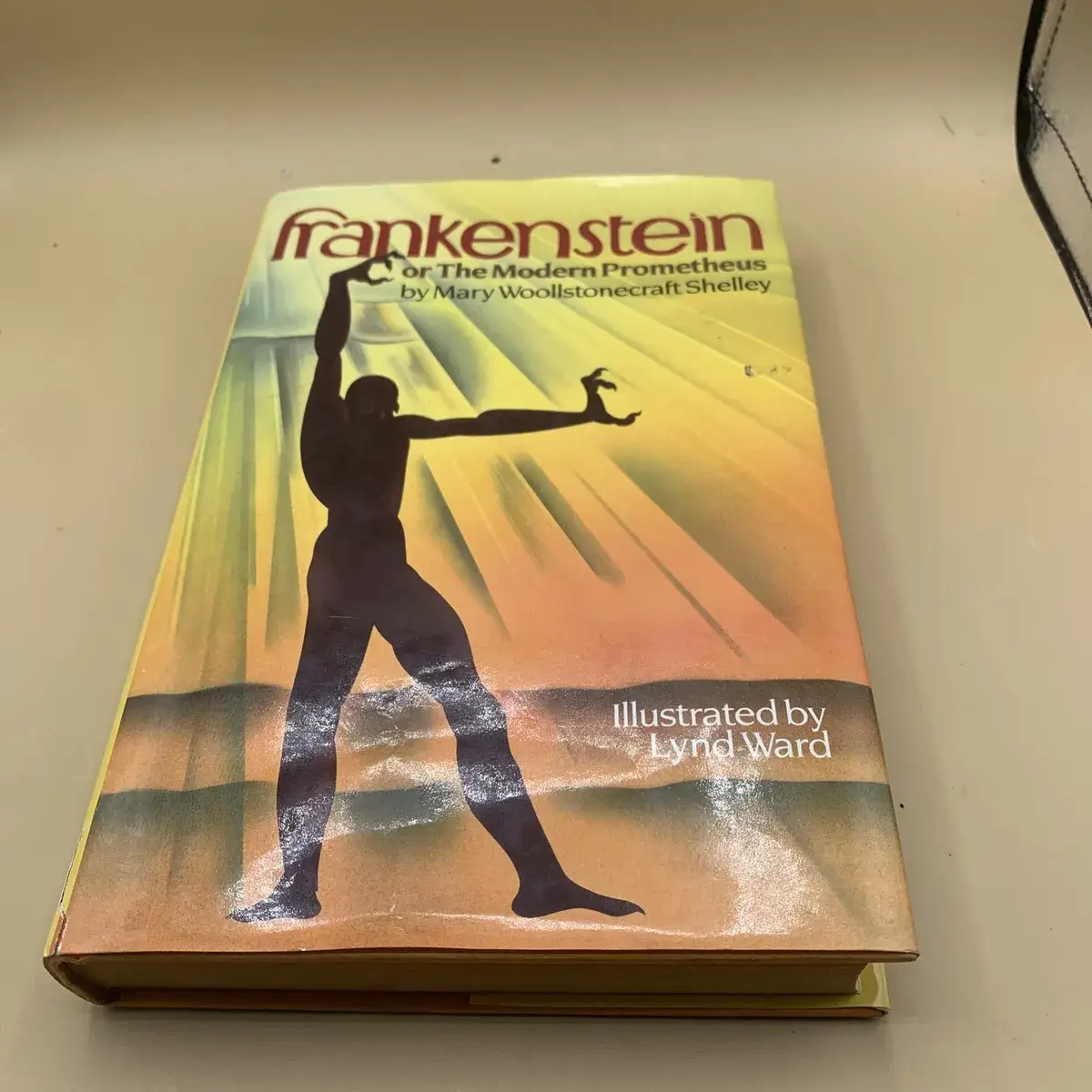
Title: Frankenstein
Author: Mary Shelley
Publication Date: 1818
Genre: Gothic, Science Fiction, Horror
Summary: "Frankenstein" tells the haunting tale of Victor Frankenstein, a young scientist who becomes obsessed with creating life. Using unconventional and dark scientific methods, he brings to life a monstrous creature. However, horrified by his own creation, Victor abandons the creature, leading to tragic consequences. The monster, seeking companionship and understanding, is rejected by society and driven to seek revenge on its creator. The novel delves into themes of ambition, responsibility, societal rejection, and the consequences of playing god.
Themes:
Ambition and Hubris: Victor's relentless pursuit of knowledge and ambition to create life leads to disastrous consequences. The novel warns against the dangers of unchecked ambition and the consequences of playing god.
Isolation and Alienation: Both Victor and the monster experience profound isolation and alienation from society, which fuels their despair and destructive behaviors.
Nature vs. Nurture: The novel explores the debate between nature and nurture, raising questions about whether the monster's actions are a result of its inherent nature or the harsh treatment it receives from society.
Responsibility and Consequences: Victor grapples with the responsibility of his creation and the devastating consequences of abandoning the monster.
Appearance vs. Reality: The novel challenges the notion of appearances, as the monster's physical ugliness contrasts with its emotional depth and intellect.
Quotes:
- "I ought to be thy Adam, but I am rather the fallen angel."
- "Beware; for I am fearless, and therefore powerful."
- "I do know that for the sympathy of one living being, I would make peace with all. I have love in me the likes of which you can scarcely imagine, and rage the likes of which you would not believe."
Relevance Today: "Frankenstein" remains relevant for its exploration of ethical and moral dilemmas surrounding scientific advancement and the consequences of human actions.
Literary Influence: Mary Shelley's novel has left an indelible mark on literature and popular culture, inspiring numerous adaptations, movies, and other works.
Legacy: Regarded as a seminal work of science fiction and horror, "Frankenstein" has continued to captivate readers for over two centuries.
Cultural Impact: The novel's themes of creation, identity, and the dangers of unbridled ambition have had a lasting impact on the horror and science fiction genres.
Feminist Perspective: Mary Shelley's authorship of "Frankenstein" as a young woman in the early 19th century challenges gender norms and highlights the contributions of women to literature.
Message of Empathy: The novel encourages readers to consider the consequences of their actions and to show empathy towards those who may be different or misunderstood.
Social Critique: "Frankenstein" critiques societal prejudice and the dangers of rejecting those who are different, illustrating the consequences of such exclusion.
Timeless Classic: Mary Shelley's masterpiece endures as a timeless classic, provoking thought and discussion about the complexities of human nature and the pursuit of knowledge.
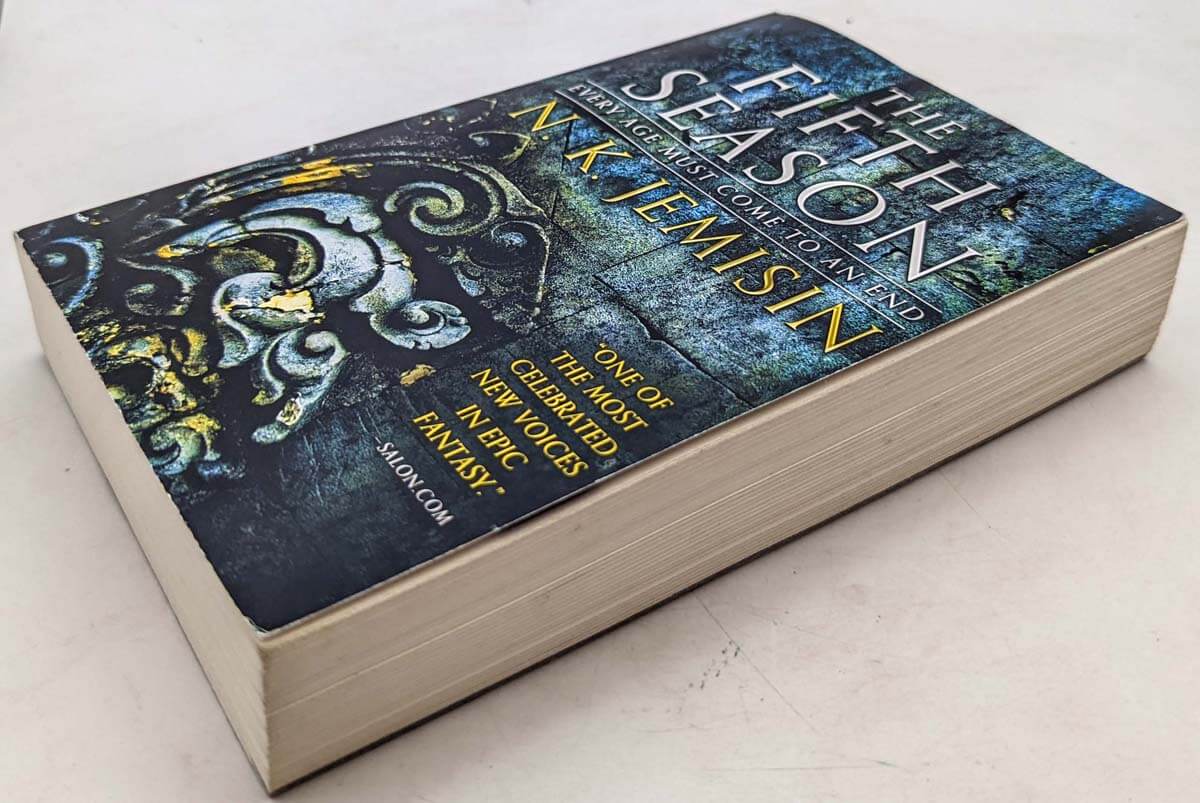
Title: The Fifth Season
Author: N.K. Jemisin
Publication Date: 2015
Genre: Fantasy, Science Fiction, Dystopia
Summary: "The Fifth Season" is the first book in N.K. Jemisin's critically acclaimed "Broken Earth" trilogy. Set in a world plagued by seismic cataclysms known as "Fifth Seasons," the story follows three interconnected narratives. Essun, a powerful woman with orogenic (earth-controlling) abilities, searches for her missing daughter while dealing with the heartbreak of a shattered family. Damaya, a young girl with orogeny, is taken to the Fulcrum, a school to harness her powers, but faces prejudice and danger. Lastly, Syenite, an orogene Fulcrum operative, is assigned a mission that will change the course of her life forever. As these narratives converge, the novel explores themes of power, oppression, and survival in a world shaped by geological upheavals and societal hierarchies.
Themes:
Power and Oppression: The novel examines power dynamics between orogenes and the ruling society, exploring themes of exploitation, control, and resistance.
Survival and Resilience: In a world plagued by catastrophic "Fifth Seasons," characters must navigate the challenges of surviving natural disasters and societal prejudice.
Identity and Acceptance: The protagonists grapple with their identities as orogenes, facing the burden of acceptance and understanding their unique abilities.
Environmental Themes: The recurring Fifth Seasons serve as a metaphor for environmental issues, reminding readers of the fragile balance between humanity and the natural world.
Trauma and Healing: Characters experience various traumas, and the novel delves into their journeys of healing and resilience.
Quotes:
- "But if you don’t take control of the pain, the pain will take control of you."
- "Sometimes the weight of her new power scared her more than the fear of what she was, or the fear of what she’d become."
- "No voting on who gets basic rights. It’s a human thing."
Awards and Recognition:
- Hugo Award for Best Novel (2016)
- Nebula Award for Best Novel (2015)
- Locus Award for Best Fantasy Novel (2016)
Relevance Today: "The Fifth Season" remains relevant for its exploration of power, social dynamics, and ecological themes, drawing parallels to contemporary issues.
Literary Impact: N.K. Jemisin's novel has been widely praised for its inventive world-building, rich character development, and thought-provoking themes.
Diversity in Literature: N.K. Jemisin, a prominent Black woman author, brings much-needed diversity and representation to the speculative fiction genre.
Social Commentary: The novel offers a nuanced commentary on social structures, privilege, and the consequences of unchecked power.
Complex World-Building: N.K. Jemisin's intricate world-building immerses readers in a unique and vividly realized dystopian setting.
Progressive Narrative: "The Fifth Season" challenges conventional fantasy tropes, providing a fresh and inclusive perspective on the genre.
Engaging and Thought-Provoking: The novel's blend of powerful storytelling, unique magic system, and relevant themes captivates readers and sparks important discussions.
Award-Winning Trilogy: The "Broken Earth" trilogy, of which "The Fifth Season" is the first installment, has received widespread acclaim and garnered prestigious awards.
Cultural Impact: "The Fifth Season" has become a cornerstone of modern speculative fiction, influencing the genre and inspiring readers and writers alike.
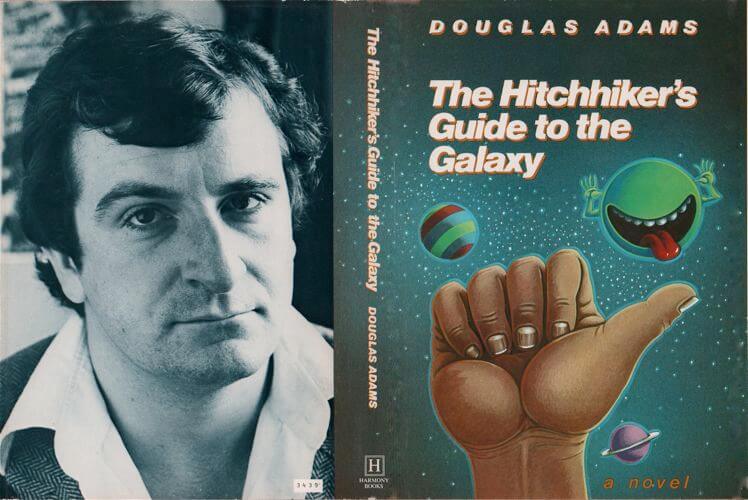
Title: The Hitchhiker's Guide to the Galaxy
Author: Douglas Adams
Publication Date: 1979
Genre: Science Fiction, Comedy
Summary: "The Hitchhiker's Guide to the Galaxy" is a comedic science fiction novel that follows the misadventures of Arthur Dent, an ordinary Earthman who is whisked away from Earth just before its demolition to make way for a hyperspace bypass. Arthur's close friend, Ford Prefect, reveals himself as an alien and rescues Arthur by hitching a ride on a spaceship owned by the eccentric president of the Galaxy, Zaphod Beeblebrox. Along with the two-headed alien Zaphod, the intelligent Trillian, and the depressed robot Marvin, they embark on a whimsical journey through space and time.
Through a series of absurd and hilarious encounters, Arthur and his companions explore the universe while seeking the answer to life, the universe, and everything. The answer, surprisingly, turns out to be 42, leaving them to uncover the question that fits the enigmatic answer. Throughout their intergalactic escapades, they encounter peculiar creatures, face comically dangerous situations, and confront the absurdities of the universe.
Themes:
Absurdity and Humor: The novel is known for its witty humor, clever wordplay, and satirical take on science fiction tropes.
Exploration and Adventure: The characters embark on an adventurous journey across the cosmos, discovering strange worlds and encountering bizarre beings.
Existential Questions: The story playfully explores existential questions about the meaning of life, the universe, and the search for ultimate truths.
Friendship and Identity: Arthur's friendship with Ford and his interactions with other characters lead to introspection about identity and one's place in the universe.
Technology and Absurdity: The novel humorously highlights the absurdities of advanced technology and its impact on society.
Quotes:
- "Don't Panic."
- "Time is an illusion. Lunchtime doubly so."
- "The ships hung in the sky in much the same way that bricks don't."
Awards and Recognition:
- "The Hitchhiker's Guide to the Galaxy" has been praised by readers and critics alike for its originality, wit, and imagination.
Cultural Impact: The book has become a cult classic and a beloved icon of science fiction and humor.
Satirical Classic: Douglas Adams' sharp satire and unique writing style have left a lasting impact on the science fiction genre.
Adaptations: "The Hitchhiker's Guide to the Galaxy" has been adapted into various forms, including a radio series, a TV series, and a movie.
Enduring Legacy: The novel's quirky humor and philosophical themes continue to resonate with readers of all ages.
Timeless Appeal: The story's timeless humor and clever observations about the human condition have ensured its popularity across generations.
Social Commentary: While providing comic relief, the novel subtly comments on various aspects of human society and behavior.
Innovative Science Fiction: Douglas Adams' approach to science fiction breaks away from traditional narratives, making it a pioneer in the genre.
Clever Puns and Wordplay: The book's use of clever wordplay and puns has inspired writers and humorists worldwide.
Interstellar Wisdom: "The Hitchhiker's Guide to the Galaxy" playfully blends interstellar travel with philosophical musings, making it a unique and thought-provoking read.
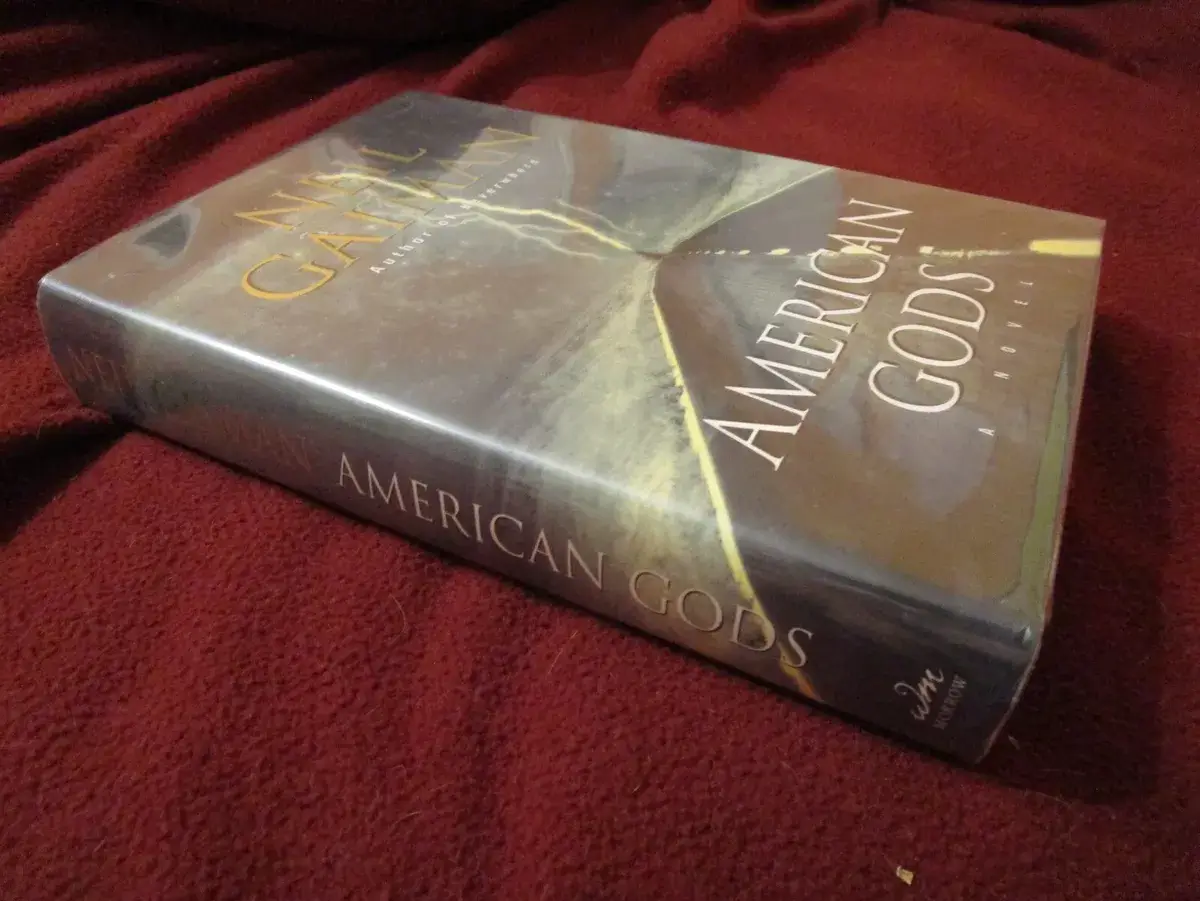
Title: American Gods
Author: Neil Gaiman
Publication Date: 2001
Genre: Fantasy, Mythology, Mystery
Summary: "American Gods" follows the story of Shadow Moon, a recently released convict who finds himself drawn into a hidden world of ancient gods and modern deities. Upon learning of his wife's tragic death, Shadow meets a mysterious man named Mr. Wednesday, who offers him a job as his bodyguard and assistant. Unbeknownst to Shadow, Wednesday is actually Odin, the Norse god of war and knowledge, and he is on a mission to rally old gods to confront the new gods of technology and media.
As Shadow and Wednesday travel across America, they encounter a wide array of deities representing various cultural and mythological traditions. These gods have been brought to America by immigrants, and their power and influence have waned as people's beliefs have shifted. The novel explores themes of belief, faith, and the clash between ancient traditions and modernity.
As Shadow navigates through this strange world of gods and magic, he must confront his own past, make sense of the war between the old and new deities, and ultimately choose his own path in the divine conflict.
Themes:
Mythology and Folklore: The novel weaves together various mythologies and folklores from different cultures, exploring how they shape beliefs and identities.
Belief and Faith: Gaiman delves into the power of belief and how it affects gods and mortals alike.
Cultural Identity: The novel explores the immigrant experience and the ways in which cultures are preserved and evolve in a new land.
The Clash of Gods: The conflict between traditional gods and the new gods of technology and media reflects the clash between ancient and modern belief systems.
Quest for Identity: Shadow's journey is not only a physical one but also a quest for self-discovery and understanding.
Quotes:
- "What I say is, a town isn't a town without a bookstore. It may call itself a town, but unless it's got a bookstore, it knows it's not foolin' a soul."
- "I can believe things that are true and things that aren't true and I can believe things where nobody knows if they're true or not."
- "Gods die. And when they truly die they are unmourned and unremembered. Ideas are more difficult to kill than people, but they can be killed, in the end."
Awards and Recognition:
- "American Gods" won the Hugo, Nebula, Bram Stoker, and Locus Awards, among others, solidifying its place as a modern fantasy classic.
Cultural Impact: The novel has become a seminal work in contemporary fantasy literature, inspiring a devoted fan base.
TV Adaptation: In 2017, "American Gods" was adapted into a critically acclaimed TV series that further popularized the story.
Neil Gaiman's Genius: The novel showcases Neil Gaiman's unique storytelling style and ability to blend mythology with modern themes.
Intriguing Premise: The concept of old gods living among us and vying for power resonates with readers' fascination with mythology and belief.
Rich and Imaginative: Gaiman's vivid descriptions and imaginative world-building bring the story's mythical characters to life.
Social Commentary: "American Gods" explores contemporary issues through the lens of mythology, making it both thought-provoking and entertaining.
Unique Narrative: The blending of mythology, mystery, and fantasy creates a narrative unlike any other in the genre.
Diversity of Characters: The novel features a diverse cast of characters, each with their own intriguing backstory and motives.
Epic Journey: Shadow's journey takes readers on a sweeping, epic adventure across America's diverse landscapes and cultural heritage.

